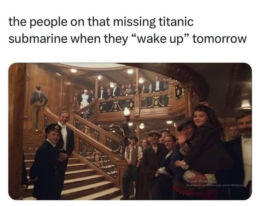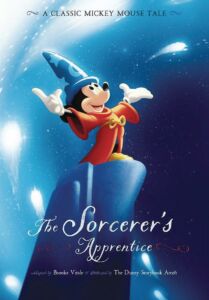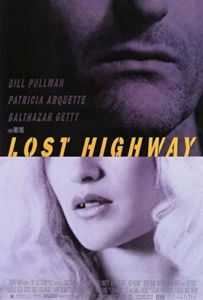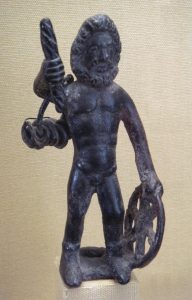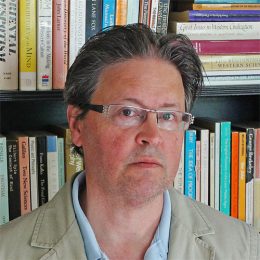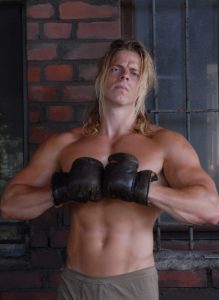The story of a missing — later discovered to be destroyed — improvised submersible that had set out to visit the Titanic’s rusting hulk has been covered by every major news outlet on the planet over the past two weeks. (more…)
Tag: Faustian man
-
February 14, 2023 Émile Durand
Faustovská civilizace a nový patriarchát
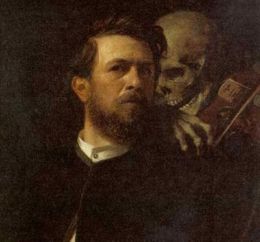
Faustovská civilizace se obrátila k rovnostářství

Faustovská civilizace se obrátila k rovnostářství
1.764 slov
English original here
Pravda o ženách o vztazích mezi pohlavími bývá zpravidla pro muže tou poslední, nejtvrdší a emocionálně nejobtížněji stravitelnou ze všech „red pills“: zatímco pochopení genetických a biologických rasových odlišností, pravda o Hitlerovi a 2. světové válce či židovské otázce u lidí obdařených jistou dávkou intelektuální otevřenosti a kritické myšlení obvykle přichází bez větších zádrhelů, prozření o ženách obvykle kráčí ruku v ruce s koňskou dávkou popírání. (more…)
-
Spoilers follow.
This White Boy Summer was blessed by a temporary return to the tradition of great movies with the release of Top Gun: Maverick. In an otherwise culturally drab era, Maverick is well named, as it is itself a maverick that bucks current trends. We find in this revival of the Top Gun franchise not another uninspired Hollywood cash grab, but a revival of our race’s traditionalism and Faustian spirit. Additionally, Maverick accidentally ends up revealing much about where the United States military is headed. (more…)
-
When I was a boy my parents would take me to the cinema. (That’s the Proustian opener out of the way). It would be either my father or my mother but never both, as I had brothers five years younger than me, identical twins, and my parents would take turns looking after them (and they were a handful) while the other one took me to see a movie. I remember seeing Walter Matthau in the movie Prisoner of Second Avenue with my dad, and both my mother and I being scared out of our wits seeing Carrie. I also remember classic Disney films. (more…)
-
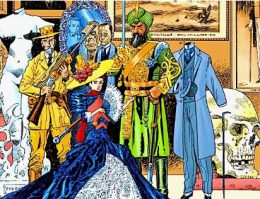
Alan Moore’s The League of Extraordinary Gentlemen: a modern take on the motifs of the weird nineteenth century.

Alan Moore’s The League of Extraordinary Gentlemen: a modern take on the motifs of the weird nineteenth century.
5,476 words
It’s ill to loose the bands that God decreed to bind;
Still we be the children of the heather and the wind.
Far away from home, O it’s still for you and me
That the broom is blowing bonnie in the north countrie. [1]Even below the Missouri-Compromise Line, the mornings now have a delicious coolness, faltering on the edge of a “chill,” and I found myself yearning for an old-fashioned, nineteenth-century ghost story. (more…)
-

Voyager 2, loading into a Centaur rocket.

Voyager 2, loading into a Centaur rocket.
2,806 words
I suspect most people have particular topics that affect them profoundly and cause a welling up of emotion that most other people would find a bit strange. For me, the topic is space probes. When I watch documentaries or read articles about them, I tear up the way we all tear up at a piece of heartbreakingly beautiful music or a cynic-proof rendition of the national anthem. After the unmanned spacecraft Cassini completed its mission in 2017 and sent back its stunning images of Saturn, the probe’s creators issued (more…)
-
Lost Highway is probably not a lot of people’s favorite David Lynch film. I would rank it in the lower rungs of his canon. But it is still a masterful film that draws me back again and again.
The big question about Lost Highway is what actually happens. This movie has a plot that you can fully summarize without really spoiling it, because the meaning is never really given away. (more…)
-
April 26, 2019 Gregoire Canlorbe
A Conversation with Ricardo Duchesne, Part 3
-
2,839 words
Part 2 of 3 (Part 1 here, Part 3 here)
Grégoire Canlorbe: Western civilization, originating from the Indo-European heroic ethos, turned out to be both the most creative and Faustian civilization and the most war-ridden and war-dominated one. Islamic civilization has been equally militaristic and expansionist; yet it quickly became frozen and hostile towards innovation and individual genius, despite the fact that praising Muhammad’s heroic lifetime has permeated Islamic societies to this day. How do you explain this duality?
-
-
John Morgan and Survive the Jive join Fróði Midjord on the latest Guide to Kulchur to discuss the German filmmaker Werner Herzog’s masterpiece, Aguirre, the Wrath of God. After Fróði discusses the upcoming Scandza Forum conference in Stockholm, the three analyze the film, which is about a mad Spanish Conquistador, played by Klaus Kinski, in the sixteenth-century Amazon who is on a quest to locate the legendary city of El Dorado. (more…)
-
Audio version: To listen in a player, use the one above or click here. To download the mp3, right-click here and choose “save link as” or “save target as.” To subscribe to the CC podcast RSS feed, click here.John Morgan and Michael Polignano interview Swedish nationalist YouTube commentator and fitness guru Marcus Follin, a.k.a. The Golden One. (more…)
-
Overall, the White Nationalist movement is positive. The “positivity” of the movement emanates from our collective ethnonationalistic desire for transformational change. (more…)
